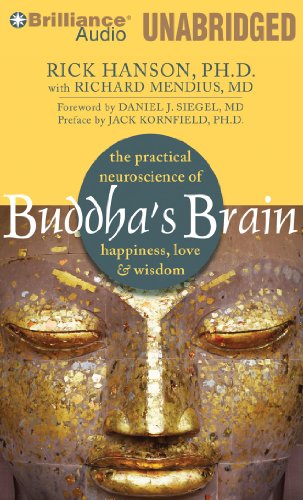
The Buddha and other great teachers were born with brains built essentially like anyone else’s — and then they changed their brains in ways that changed the world.
Science is now revealing how the flow of thoughts actually sculpts the brain. By combining breakthroughs in neuroscience with insights from thousands of years of contemplative practice, you, too, can use your mind to shape your brain for greater happiness, love, and wisdom.
Buddha’s Brain draws on the latest research to show how to stimulate and strengthen your brain for more fulfilling relationships, a deeper spiritual life, and a greater sense of inner confidence and worth. You’ll learn how to activate the brain states of calm, joy, and compassion instead of worry, sorrow, and anger. This clear, down-to-earth book is filled with practical tools and skills that you can use in daily life to tap the unused potential of your brain and rewire it over time for greater well-being and peace of mind.

The Click and Clack of the Frontal Lobe “If I know one thing for sure, it’s that you can do small things inside your mind that will lead to big changes in your brain and your experience of living. I’ve seen this happen again and again with people I’ve known as a psychologist and meditation teacher . . .”- Rick HansonBuddha’s Brain will not only explain ‘why’ you should take in the good but ‘how’ you can achieve a more positive outlook with some basic awareness skills. The authors, Neuropsychologist, Rick Hanson and…
Highly Recommended We have often been told that by altering our thoughts, deeds and words, we can create a happier, more fulfilled life. This book, at the intersection between psychology, neuroscience, and Buddhism, offers effective methods to show us how to live such a life by being fully present in the moment.Hanson and Mendius, a neuropsychologist and a neurologist and both practicing Buddhists, show us just how the brain programs us to experience the world a certain way by combining information…